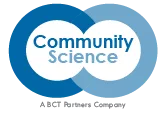The Global Libraries (GL) initiative of the Bill and Melinda Gates Foundation aims to use libraries as a resource to bring about Internet and technology access to developing and transitioning countries as a means to improve lives and opportunities. For the last four years, Community Science has worked in partnership with GL to build the capacity of the Impact Work Group (IWG). The IWG is comprised of impact specialists who work closely with library staff and other stakeholders in their countries to assess their grant activities and measure impact on library users (e.g., improve health, job access, financial security, and education outcomes).
As impact specialists are spread out across the world working in various contexts, we have focused our role as learning facilitator and capacity building partner on principles of cross-cultural competency and adult learning. IWG activities have included in-person meetings, online meetings, check-in video conference calls, and online discussion boards in order to facilitate peer-learning opportunities. Additionally, we have compiled monitoring and evaluation tools, developed and disseminated a quarterly newsletter, implemented a peer-to-peer mentoring program, and coordinated a series of Community of Practice (CoP) groups. We use both high-tech and low-tech exchanges to provide impact specialists the opportunity to not only share what each is doing to measure the impact of the Global Libraries program in their countries, but also discuss how their own tools, methods, and practices may (or may not) have relevance in other country settings.
The Communities of Practice program is a prime example of how colleagues across the world can dialogue with each other on important topics such as sustainability of impact assessment, building relationships, and using new and innovative data collection methods. These meetings happen in real-time and offer a peer-led venue for troubleshooting common challenges encountered, as well as learning how to apply new ideas and methods to impact assessment. A key element of the CoPs and other IWG activities is to not only spotlight new ideas, but help impact specialists determine the fit of these ideas to their contexts and develop plans to transfer these ideas into their day-to-day work. According to Jeremy Paley, Program Officer, Global Development (Global Libraries): “Community Science staff brought technical monitoring and evaluation skills to this suite of activities, but also deftly facilitated grantees from all over the world—from Bulgaria to Botswana, from Chile to Indonesia—and helped them harness the power of their own collective skills and experiences. Through several creative methods, activities, and sessions, Community Science proved particularly adept at tapping into and excavating group members’ tacit knowledge. Grantees’ impact assessment and monitoring and evaluation products have increased in quality, utility, and advocacy value as a result.”
